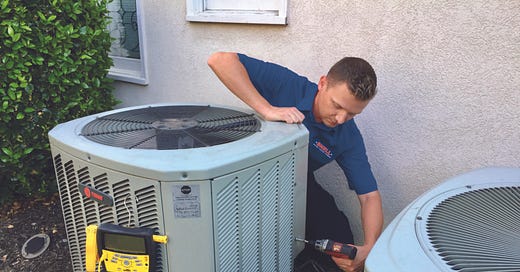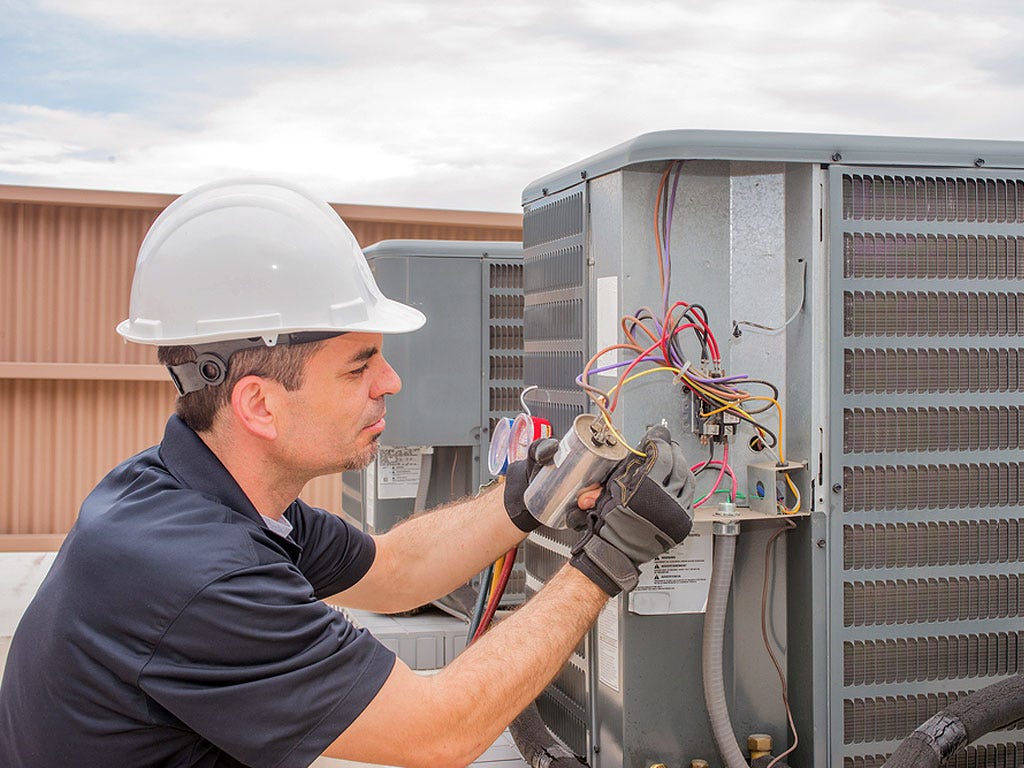A Guide to the Different Types of HVAC Systems
Explore the different types of HVAC systems and discover the best options for your home in Prescott Valley, AZ. Learn about HVAC system upgrades, efficiency, and how to choose the right solution for c
Choosing the right heating and cooling solution for your home is essential—especially in a place like Prescott Valley, AZ, where temperatures can vary widely between seasons. Whether you're building a new home or replacing an outdated unit, understanding the different types of HVAC systems available can help you make a decision that balances comfort, energy efficiency, and long-term value. Each type of system is designed to meet specific climate needs and household sizes, so selecting the right one can significantly affect your indoor air quality and monthly utility bills.
Arizona’s high-desert environment presents unique HVAC demands. Summers bring intense heat, while winters can get surprisingly chilly. That’s why the system you choose must be able to adapt and perform reliably throughout the year. This guide will walk you through the most common HVAC system types, along with their advantages and ideal use cases.
When to Consider HVAC System Upgrades
If your current system is over 10 years old, frequently breaks down, or fails to maintain consistent temperatures, it might be time to look into HVAC system upgrades. Today’s options are much more efficient, quiet, and environmentally friendly than older models. Upgrading not only boosts performance but also reduces your monthly energy costs and carbon footprint.
New HVAC systems come equipped with smart features, zoning capabilities, and variable-speed motors that improve both comfort and efficiency. In addition, many upgrades qualify for tax credits or rebates, making them more affordable than homeowners often realize. Whether you’re switching from a traditional furnace and AC combo to a heat pump, or just replacing a single component, the benefits of upgrading can be felt immediately in both comfort and cost savings.
A professional assessment can help you determine the best path forward. An HVAC technician will evaluate your home’s layout, insulation, energy usage, and climate zone before recommending the most suitable system.
Trusted Advice from the Experts
For residents in the area looking for trustworthy guidance on HVAC selection and upgrades, SQU Services INC offers expert consultation and installation. With years of experience working with both modern and legacy systems, their team understands the nuances of Prescott Valley’s climate and how to match it with the best HVAC technologies. From ducted solutions to ductless mini-splits and beyond, their advice can help you avoid costly missteps and ensure your system performs at its best year-round.
Types of HVAC Systems Explained
Let’s take a closer look at the most common HVAC systems and who they’re best suited for:
1. Split Systems
This is the most common type found in residential homes. It includes separate indoor and outdoor units—one for heating (typically a furnace) and one for cooling (an air conditioner). Split systems are reliable and efficient, especially in homes that already have ductwork installed.
2. Hybrid Systems
A hybrid HVAC system combines a gas furnace with an electric heat pump. It intelligently switches between fuel sources depending on temperature, maximizing efficiency. These systems are ideal for regions with moderate winter temperatures.
3. Ductless Mini-Split Systems
Ductless systems include an outdoor compressor and one or more indoor air-handling units. They're ideal for homes without ductwork, room additions, or where zoning (heating/cooling rooms individually) is desired.
4. Packaged Systems
In packaged systems, all components (heating and cooling) are housed in one unit, usually installed outdoors on a roof or slab. They are typically used in small commercial buildings or homes with limited indoor space.
5. Geothermal Heat Pumps
Geothermal systems use the stable temperature of the ground to heat and cool your home. Although the upfront cost is higher, they are among the most efficient systems available and offer long-term energy savings.
Factors to Consider Before Choosing
When selecting an HVAC system, consider the following:
Climate—Some systems perform better in hot or cold regions.
Home Size and Layout—Larger homes may require zoning or multiple units.
Energy Efficiency—Look for SEER (cooling) and AFUE (heating) ratings.
Budget—Consider long-term savings, not just the initial cost.
Installation—Some systems require ductwork or special electrical setups.
Talking to a certified HVAC contractor can help ensure you don’t over- or under-size your system, which can cause performance and efficiency issues over time.
Conclusion
Your HVAC system plays a vital role in your home's comfort, air quality, and energy consumption. In a place like Prescott Valley, AZ, having the right system is essential to handle the seasonal swings in temperature. Whether you're exploring HVAC system upgrades or choosing a system for a new home, understanding your options can save you money and stress. Take the time to assess your current system, know your home’s needs, and explore modern, efficient options that improve your quality of life now and in the long term.
FAQs
Q: What is the most energy-efficient HVAC system?
A: Geothermal heat pumps and high-SEER-rated ductless mini-split systems are among the most efficient options available today.
Q: How do I know if I need an HVAC system upgrade?
A: If your system is over a decade old, frequently needs repairs, or your energy bills are unusually high, it may be time to upgrade.
Q: Can I install a ductless system in just one room?
A: Yes, ductless mini-splits are perfect for single-room installations and can be expanded for whole-home use.
Q: Are HVAC system upgrades worth the cost?
A: In most cases, yes—especially when you factor in improved comfort, lower energy bills, and available rebates or tax credits.
Q: How long do HVAC systems typically last?
A: With regular maintenance, most systems last 10–15 years. High-end models or geothermal systems may last even longer.




